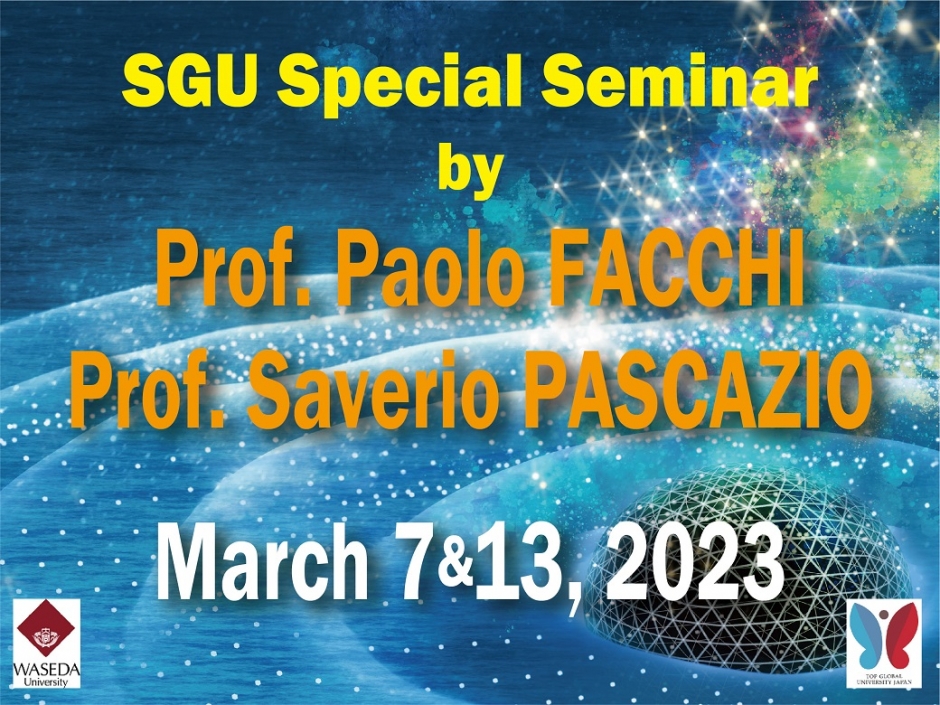- News
- SGU Special Seminars by Prof. Paolo FACCHI and Prof. Saverio PASCAZIO
SGU Special Seminars by Prof. Paolo FACCHI and Prof. Saverio PASCAZIO

Dates
カレンダーに追加0307
TUE 20230313
MON 2023- Place
- 55N-1F Meeting Room 01 and 02, Nishi-Waseda Campus, Waseda University
- Time
- 16:30-18:00
- Posted
- 2023年2月27日(月)
On March 7 and 13, 2023, the following special seminars by Professor Paolo FACCHI and Professor Saverio PASCAZIO will be delivered as part of the international activities of the Multiscale Analysis, Modelling and Simulation Unit.
Dates
March 7, 2023 16:30-18:00
Venue: 55N-1F Meeting Room 01, Nishi-Waseda Campus, Waseda University
Speaker: Professor Paolo FACCHI (University of Bari, Italy)
Title: “Control of Quantum Noise: On the Role of Dilations”
Abstract: We show that every finite-dimensional quantum system with Markovian (i.e. GKLS-generated) time evolution has an autonomous unitary dilation which can be dynamically decoupled. Since quantum stochastic calculus provides also an autonomous unitary dilation which cannot be dynamically decoupled, this highlights the role of dilations in the control of quantum noise. We construct our dilation via a time-dependent version of Stinespring in combination with Howland’s clock Hamiltonian and certain point-localised states. We show this dilation is very flexible and can be applied to every analytic (not necessarily Markovian) family of quantum channels.
March 13, 2023 16:30-18:00
Venue: 55N-1F Meeting Room 02, Nishi-Waseda Campus, Waseda University
Speaker: Prosessor Saverio PASCAZIO (University of Bari, Italy)
Title: “Dimensional Reduction of Field Theories”
Abstract: We derive and discuss one- and two-dimensional (classical) field-theoretical models by making use of Hadamard’s method of descent. We focus on electromagnetism (Maxwell) and spin-1/2 fields (Dirac). Low-dimensional field models are conceived as a specialization of the higher dimensional ones, in which the fields are uniform along the additional spatial directions. We consider the free situation and then the interacting fields. The basic properties of these theories, as well as their relation with existing models for two-dimensional matter, are discussed. We focus on the relevance of these findings for the quantum simulation of (lattice) gauge theories.
Language
English
Audience
Researchers, Students
Participation
Free
Registration
Not required
Contact
Kazuya YUASA
Professor, Department of Physics, Waseda University
yuasa [at] waseda.jp
